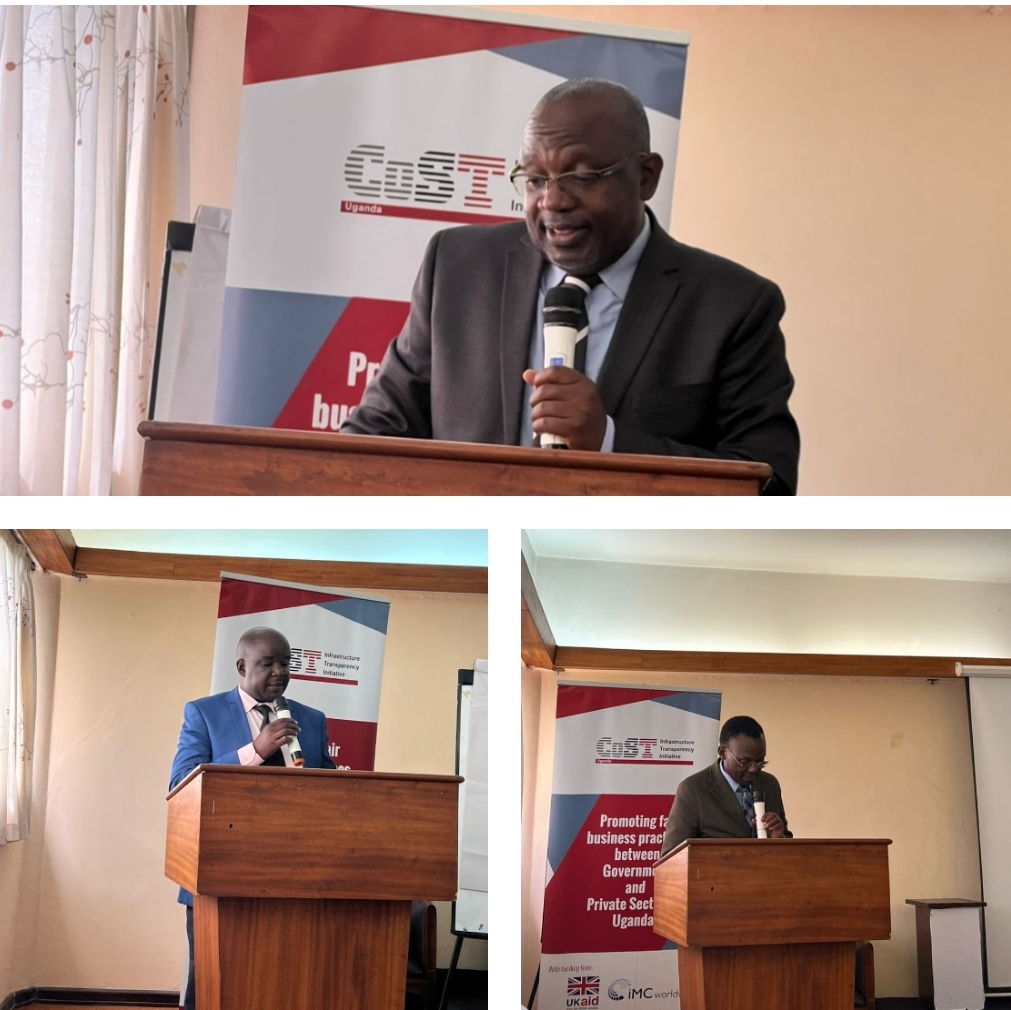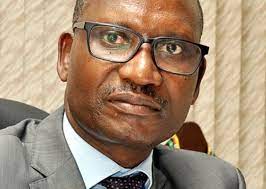TRANSPARENCY: CoST Uganda Commissions 2nd Infrastructure Transparency Index
By PATRICK JARAMOGI
KAMPALA, Uganda= SHIFT MEDIA NEWS= Despite the various laws passed in recent years to address corruption in Uganda, implementation of the laws remains a daunting tax.
This not withstanding, Uganda remains the least transparent, as per the latest studies released by the Infrastructure Transparency Index (ITI). Olive Kabatwairwe, the CoST Africa Regional Manager described the study as very worrying. Uganda comes at the tail end of the 9 listed countries (Afghanistan, Costa Rica, Ecuador, Ghana, Honduras, Indonesia, Panama, and Ukraine ) in terms of transparency.
Kabatwaire was speaking during the commissioning of the second Uganda Infrastructure Transparency Index exercise held at the Golf Course View Hotel in Kampala on Thursday. The exercise that kicks off on April 15 2024, will last for one month across 15 targeted agencies and Local Governments across Uganda.
How Is Transparency Measured?
The ITI measures levels of transparency and quality of disclosure processes related to public infrastructure, collaboratively designed and based on international good practice and lessons learnt, its objective is to improve accountability and transparency performance at procuring entity level.
According to a Transparency International survey from 2015, 69% of citizens in Uganda feel that the government does not do enough to fight corruption and 35% of respondents were afraid of the consequences of reporting corrupt practices. Transparency International’s Corruption Perception Index also shows perceptions of corruption to have steadily worsened since 2010: Uganda was ranked 142nd out of 180 countries in 2020.
The 1st ITI carried out by CoST Uganda and released in 2021 unearthed practices of low disclosures among many government entities, and local governments. Kabatwairwe noted that the findings were so “pathetic” perhaps since the country was in partial COVID-19 lock-down.
“We presume that perhaps due to COVID-19, the performance were dismal compared to the other 8 countries listed by ITI. We pray and hope that in the 2nd ITI we get better and disclose more,” said Kabatwairwe.
The 1st ITI results showed 21% out of 60 projects in 30 government entities interviewed. “We hope that there will be better results among the selected 60 entities to be interviewed in the second ITI. If we are ranked higher, it places Uganda at a better global position regarding transparency,” she said.
Gilbert Sendugwa the Executive Director Africa Freedom of Information Center (AFIC) noted that the average score in the previous ITI stood at 13.8%, regarding citizen participation, something he described as very low compared to other countries listed. Uganda he said had 18.38% in Information Disclosure, while Costa Rica, with a small nation in the Caribbean topped the list with 67.16% in information Disclosure, and 41.8% in Citizen participation. Ghana, the other only nation from the African continent listed, scored 20.4% in citizen participation, and 3.69% in information disclosure.

Sendugwa noted that CoST operates under four features namely: disclosure, assurance, multi-stakeholder working and social accountability, aspects that he said provide a global standard for CoST implementation in enhancing infrastructure transparency and accountability.
How Entities Performed Previously
The 2021 initial ITI, Kampala Capital City Authority (KCCA) emerged the best performing entity scoring 62.73%, followed by Uganda National Roads Authority (UNRA) with 58.13%, Office Of the Prime Minister (OPM) 48.11%, National Social Security Fund (NSSF) 38.74%, Office of the President 31.75%, among others. Bukedea District Local Government had the lowest disclosure at 0.8%
CoST Uganda Commissions 2nd ITI
In its desire to foster transparency and accountability in the infrastructure sector in Uganda, CoST Uganda chapter on Thursday commissioned the second Infrastructure Transparency Index to commence on April 15 until May 15 2024.
Assistant Commissioner Quality Assurance with the Ministry of Works and Transport Eng., Ben Kyemba urged the listed entities to cooperate and give information that is authentic. “The team shall be coming over to you once again, but please don’t fabricate information, only disclose what is authentic and right,” he advised.
Kyemba the purpose of the index is to enhance transparency and accountability in the infrastructure sector by adopting CoST’s core features.
Eng. Moses Odongo the Commissioner quality assurance at the Ministry of Works and Transport who represented the Permanent Secretary Bageya Waiswa hailed CoST Uganda Chapter for the exercises encouraging transparency and accountability.
“CoST Uganda has been doing a tremendous job in engaging the various stakeholders, oversight bodies and procurement entities to learn the CoST approach through monitoring, disclosure and knowledge sharing,” he said.
Geoffrey Odong the CoST Uganda Chapter Coordinator said over 30 government entities and local governments will be assessed in the one month long exercise regarding disclosure, and citizen participation.
Since joining CoST in 2014, Uganda has continually worked to embrace the initiative, showing a strong commitment to its core features of disclosure, assurance, social accountability and multi-stakeholder working.








